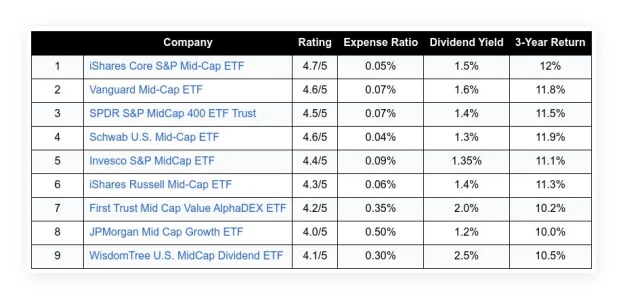When you think of retirement, what comes to mind? Are you looking forward to a time of freedom, relaxation, and pursuing your passions? Regardless of what springs to mind, some planning must be done before you chillax on the beach. At the very least, this can be about your future income streams, healthcare, and how you’re going to spend your newfound free time.
Lucky for you, there’s a wealth of knowledge at your fingertips in the form of books. For retirement planning, here are 15 must-read books:
Table of Contents
Toggle1. Retirement Planning for Beginners: A Comprehensive Guide to Building Savings, Maximizing Income, and Achieving Financial Security for Your Golden Years by Calvin Boswell
For many, even the thought of retirement triggers a cold sweat. But, with “Retirement Planning for Beginners,” you can plan your retirement in a secure, rewarding way.
This book is designed specifically for those who are new to retirement planning, as the title implies. There are easy-to-understand instructions for everyone, whether you’re young and starting out or nearing retirement. This means you won’t have to worry about confusing financial jargon!
You’ll learn a number of key lessons, such as:
- Setting realistic goals and timelines. Creating a personalized plan that meets your needs.
- An overview of retirement accounts. A clear explanation of IRAs, employer plans, and everything in between.
- Strategies for smart investing. Discover how to manage risk, diversify your portfolio, and achieve long-term growth.
- Maximizing Social Security. Utilize your benefits to their full potential and combine them with other sources of income.
- Planning for taxes, healthcare, and estate matters. For your future wealth, make sure you protect it.
In addition, Boswell, a financial expert and author of the “Financial Planning Essentials” series, offers more than just financial advice. He also covers overcoming common retirement roadblocks and developing a lifestyle plan that fulfills you.
Ultimately, this book teaches you how to build a secure, enjoyable retirement by making informed decisions.
2. The Ultimate Retirement Guide for 50+: Winning Strategies to Make Your Money Last a Lifetime by Suze Orman
Written by Suze Orman, America’s most recognized personal finance expert, this book gives you practical advice on how to plan your retirement. It was originally published in 2020, the book has been a bestseller in the New York Times, Wall Street Journal, USA Today, and Publishers Weekly.
Inside, you’ll find:
- Smart money moves for over 50s. With savvy investing and essential savings plans, Suze has you covered.
- Healthcare and beyond. Learn how to navigate Medicare and estate planning.
- Emotional intelligence for retirement. In addition to financial aspects, Suze will guide you through the emotional aspects of this new chapter as well.
As she writes in the book, “Making smart choices in your 50s and 60s will give you the gift of not having to worry about finances in your 70s, 80s, and 90s.”
3. Retirement Planning Guidebook: Navigating the Important Decisions for Retirement Success by Wade D. Pfau
Want a comprehensive overview of retirement planning? If so, you should definitely check out the work of Dr. Wade D. Pfau, an expert in retirement research and a chartered financial analyst.
In addition to serving as director of retirement research for MacLean Asset Management and inStream, Pfau teaches retirement income at The American College of Financial Services and regularly publishes his research on retirementresearcher.com.
Initially released in 2021, this in-depth book offers an in-depth look at the world of retirement planning. The book discusses the following topics throughout its 476 pages:
- Identifying your retirement income needs.
- Get a better understanding of various insurance and investment options.
- Navigating the Social Security system.
- Preparing for long-term care and managing medical expenses.
In general, this is one of the most comprehensive and well-written personal finance guides you’ll read.
4. The Bucket Plan: Protecting and Growing Your Assets for a Worry-Free Retirement by Jason L. Smith
In 2017, Jason L. Smith published “The Bucket Plan” to lay out a retirement savings strategy designed to minimize sequence-of-returns risk.
In case you are unfamiliar with it, retirees are at risk when the market takes a downturn just as they leave the workforce. How can you minimize this risk? As a rule of thumb, Smith recommends placing funds in different buckets, such as investments vs. accounts, depending on when you will need them.
Throughout this book, Smith presents information through conversations with his clients. Although some readers may find the long sections of dialogue off-putting, others may feel this style makes the information relatable. Even so, the book is written in easy-to-understand language, perfect for do-it-yourselfers and those working with advisors.
5. How to Make Your Money Last: The Indispensable Retirement Guide by Jane Bryant Quinn
Publishers Weekly calls Jane Bryant Quinn’s book “a highly valuable resource” because it offers clear-cut solutions to retirement’s biggest concern: running out of funds.
With this book, you’ll discover how to:
- Get a guaranteed income stream for your entire retirement with your savings.
- Maximize your Social Security, pension, and other retirement assets.
- Keep your money safe and invest wisely for growth as well as stability.
- Plan for the future while protecting your savings in early retirement.
Overall, this book provides a good introduction to retirement planning and its various products and strategies. Note, however, that some details of this have changed since the SECURE Act. For example, stretch IRAs no longer exist.
6. The Five Years Before You Retire: Retirement Planning When You Need It the Most by Emily Guy Birken
Here’s a problem most people face when planning for retirement. They wait too long. They realize, however, that they have not saved enough by the time they reach their sixties.
Thanks to this book, written by finance writer Emily Guy Birken, you can plan for a secure future before it’s too late. In fact, by following clear, actionable steps, you can create a personalized retirement plan in just five years.
As a result of reading this book, you will:
- In five years, develop a clear, actionable retirement plan.
- Plan ahead for a stress-free future by understanding the power of early planning.
- Build a solid financial foundation by stretching your current savings.
- Keep up-to-date with tax and Social Security updates.
- Have informed discussions about healthcare, insurance, and family issues.
For anyone considering retirement or already in retirement, this book offers insightful insights both for beginners and experts.
7. The Bogleheads’ Guide to Retirement Planning by Taylor Larimore, Mel Lindauer, and Richard Ferri
With John Bogle’s index fund wisdom, “The Bogleheads’ Guide to Retirement Planning” offers a clear roadmap for a secure retirement.
This book emphasizes straightforward and cost-effective approaches. It recommends index funds, which have historically shown stronger performance than actively managed funds due to their lower fees. In addition, you’ll gain practical knowledge about asset allocation, rebalancing, and tax strategies.
Investment, planning, and preparation are also discussed in the book. Some topics discussed are:
- The best way to estimate your retirement needs.
- A variety of income sources you have in retirement.
- Creating a workable budget.
Additionally, social security, healthcare, and estate planning are discussed.
Those who wish to achieve financial independence and a secure retirement will find this resource invaluable. Whatever your financial background or investment experience, it’s clear language and practical advice will make it a valuable addition to your retirement arsenal.
8. How to Retire Happy, Wild, and Free: Retirement Wisdom That You Won’t Get from Your Financial Advisor by Ernie Zelinski
Consider what it would be like to retire with joy, adventure, and purpose. Surprisingly, the key is not to have a massive nest egg. Author Ernie J. Zelinski explains how you can create a retirement that’s truly yours in his book “How to Retire Happy, Wild, and Free.”
Throughout this inspirational book, the emphasis is not only on finances but on living a fulfilling life in general. As a result, you will learn:
- Being courageous enough to retire early and start living your dreams as soon as possible.
- The secret to happiness without spending millions.
- Using passion and purpose to fill your days.
- Investing in your mental, physical, and spiritual health is the key to achieving happiness.
- Embrace your retirement journey with strong friendships.
The book is written in a friendly tone and features engaging illustrations as well as inspiring quotes that will help you enjoy your retirement years to the fullest.
9. 10 Costly Medicare Mistakes You Can’t Afford To Make by Danielle K. Roberts
Are you worried about healthcare costs in retirement? You’re not alone.
In a country where 100 million people suffer from medical debt, a Nationwide Retirement Institute survey data indicates two-thirds of U.S. adults (66%) worry that a single significant healthcare issue could ruin their finances for years to come. They are also terrified that healthcare costs will ruin their retirement plans. Another 72 percent of Americans fear their healthcare costs will spiral out of control in retirement.
With “10 Costly Medicare Mistakes,” written by Medicare expert Danielle K. Roberts, you’ll learn the complexities of Medicare and avoid costly mistakes. After all, it can be challenging to navigate Medicare’s official website, even though it is a valuable resource. As a result of this book, though, you’ll be able to understand your options and avoid costly mistakes.
As an FYI, the book was updated for 2023 to ensure that you have the most up-to-date information on Medicare enrollment, coverage details, and how to get the most out of your Medicare coverage.
10. What You Don’t Know About Retirement Planning Can Hurt You by Dan White
In 2017, Dan White, a retirement income planning specialist and founder of Daniel A. White & Associates, LLC, published “What You Don’t Know about Retirement Planning Can Hurt You.” It uses the metaphor of Mount Everest to illustrate how retirement is the descent from your own Mount Everest, while financial life is the climb to the summit.
The reason? More and more people are running out of money.
“There was a time that you retired, shook hands, got the gold watch, and got a pension for the rest of your life. Those days are history,” said Dan White.
To show people how to combine different retirement funds and focus on what White calls “the sweet spot” between 59.5 and 70.5 years old. This is “because, from a tax planning standpoint, they have more flexibility at this stage of their life than they’re ever going to have again.”
“It is important to educate people about how the pieces and strategies have to fit together,” he adds. Between Social Security, RMDs, and where they will get the income from, to what kind of tax brackets they will fall into – it’s really an education process for the client.”
11. Die with Zero: Getting All You Can from Your Money and Your Life by Bill Perkins
Do you ever realize, during your retirement journey, that you have followed everyone’s script? You worked hard, saved money, and dreamed of a carefree life.
However, what is the one thing that you wasted? Your own life.
In Die with Zero, the script is turned upside down. The book is a wake-up call and a guide for achieving financial freedom, but with a twist: it prioritizes rich experiences over a bulging bank account in retirement. Bill Perkins, known as the “Last Cowboy” of hedge funds, aims to prevent overspending and underliving.
Anyone who wants to optimize every stage of their lives should read this book, regardless of age. Ultimately, Perkins offers plans to maximize your earnings and savings.
For example, find out how “time-bucketing” can help you maximize unforgettable moments. Using the “net worth curve,” you can turn your income into priceless memories. Plus, you’ll learn whether investing or indulging is a good idea.
He combines his own stories with lessons from psychology and finance, inspiring stories, and cautionary tales. He argues that you should live a life well-lived, not just a life you save for.
12. Retirementology: Rethinking the American Dream in a New Economy: Rethinking the American Dream in a New Economy by Gregory Salsbury
Are you tired of the conventional retirement narrative? Explore Gregory Salsbury’s “Retirementology.”In this humorous book, Salsbury challenges traditional thinking on retirement planning.
Using humor and relatable stories, Salsbury makes complex topics engaging and easy to understand. Beyond financial concerns, he urges you to consider what truly matters after you leave the workplace.
The book explores a variety of practical issues, from navigating Social Security to planning an estate. With Salsbury’s help, you can translate complex concepts into clear, actionable steps.
There is more to “Retirementology” than spreadsheets and seriousness, though. Throughout the book, the author pokes fun at the often-overcomplicated world of retirement planning. In addition to keeping you engaged, his relatable anecdotes make the information even more memorable.
Ultimately, “Retirementology” delivers more than just a retirement planning guide; it’s a guide to fulfilling life after retirement. With its focus on both the emotional and financial aspects of retirement, this book allows you to create a future in alignment with your values and aspirations. This is a must-read if you want to make the most of your retirement years.
13. From Strength to Strength: Finding Success, Happiness, and Deep Purpose in the Second Half of Life by Arthur C. Brooks
As people age, they may feel less purposeful, but this is a normal and healthy process. When life changes, such as retirement, illness, and losing family and friends, make maintaining purpose more difficult; however, some studies have shown that having a sense of purpose is a defining characteristic of overall health.
Arthur C. Brooks’ “From Strength to Strength” provides a guide for achieving moral excellence. He argues that retirement can be a fulfilling time if we practice virtues like humility, gratitude, and compassion.
As Brooks writes, “Devote the back half of your life to serving others with your wisdom. Get old sharing the things you believe are most important. Excellence is always its own reward, and this is how you can be most excellent as you age.”
14. The Wealthy Retirement Plan A Revolutionary Guide to Living the Rest of Your Life in Style by Vicki Wusche
Imagine a future filled with freedom, purpose, and the things you love. “The Wealthy Retirement Plan,” a finalist for the prestigious Specialist Book category in the Business Book Awards 2020, will show you how to create exactly that.
If you want a successful retirement, it’s better to start planning sooner rather than later. Why? Without one, your options are limited, and changing your mind later becomes almost impossible. You can do just that with “The Wealthy Retirement Plan,” a finalist in the Business Book Awards 2020 Specialist Book category.
For example, do you want to be stuck in a bland nursing home, or do you want to live a life filled with passion and purpose? You might not be thinking about that right now. Yet, as we continue to live longer, retirement should be rethought. Unlike our grandparents, who briefly retired before passing away, we have decades to explore, contribute, and enjoy life fully.
The book also explores the most common retirement mistakes. If you’re wondering what that means, it’s relying solely on your pension. In the face of aging populations and economic downturns, governments often struggle to provide adequate pensions.
Using Vicki Wusche’s proven 3-stage system, you can:
- Take control of your finances.
- Develop a customized investment plan.
- Live the life you deserve.
- Leverage your resources, reduce your reliance on your paycheck, and slowly transition into your dream non-traditional retirement.
Vicki’s guidance, tools, and resources can help you design your ideal retirement. There is something for everyone, whether you want to stay at home, start a business, share your expertise, or give back to the community.
15. Sound Retirement Planning: A Retirement Plan Designed to Achieve Clarity, Confidence and Freedom Book by Jason R. Parker
To achieve financial freedom and peace of mind, financial advisor Jason Parker lays out a clear roadmap to retirement. In his straightforward advice, Parker goes beyond just numbers, focusing on your values, relationships, and ideal retirement lifestyle.
With the help of this book, you will be able to:
- Retirement strategies that prioritize what’s most important.
- Keep up with inflation and secure a lifelong income.
- The best ways to minimize market risk and avoid unexpected healthcare costs.
- Optimize your tax plan and maximize your Social Security benefits.
- How to increase your cash flow, reduce fees, and diversify your investments in a new economic environment.
Overall, “Sound Retirement Planning” enables you to build a retirement tailored to your needs.
Conclusion
Of course, this is just a starting point. Many other great books can help you plan your dream retirement. Choosing what to read depends on your specific financial situation, interests, needs, and retirement goals.
FAQs
How much money will I need to retire?
The answer depends on several factors, including your desired retirement lifestyle, current income, and expected life expectancy. There are a few rules of thumb, such as saving ten times your pre-retirement salary or following the 4% rule. To determine how much you need to save for retirement, divide your desired retirement income by 4 percent.
However, you should consult a financial advisor to get a personalized estimate.
What are my retirement income options?
You will likely receive retirement income from a variety of sources, including:
- Social Security. For most retirees, Social Security provides a baseline level of income. Using the Social Security Administration’s online tool, you can estimate your benefits.
- Retirement savings. Money from employer-sponsored plans like 401(k)s and IRAs falls under this category.
- Pensions. Although they are less common nowadays, some employers still offer traditional pension plans that guarantee retirement income.
- Annuities. An annuity is an insurance product that guarantees a lifetime income.
How can I get started with retirement planning?
- Estimate your retirement needs. Take into account your desired retirement lifestyle and expenses.
- Calculate your current savings. You should consider your retirement accounts, Social Security benefits, and any pensions you may receive.
- Choose a retirement savings plan. Take advantage of IRAs, 401(k)s, and other employer-sponsored plans.
- Set a savings goal. Depending on your circumstances, this will differ.
- Develop a budget. Assess your income and expenses to identify areas for saving.
- Invest your savings. When choosing investments, keep your risk tolerance and time horizon in mind.
What are some common retirement planning mistakes?
- Saving too little. Make sure you save early and consistently to benefit from compound interest.
- Not having a plan. Prepare a retirement roadmap.
- Retiring too early. Before leaving the workforce, consider your financial security.
- Not diversifying your investments. To mitigate risk, diversify your investments across different asset classes.
- Not taking healthcare costs into account. When planning for retirement, be sure to factor in potential medical expenses.
How do I choose the right retirement planning book for me?
Choosing the right book depends on your individual needs and goals. Below are some factors to consider when making a decision:
- Your age and stage of life. You may want a more general overview of retirement if you are just considering it. You may benefit from a book with more specific strategies as you near retirement.
- Your investment knowledge. A book explaining retirement investing basics may be helpful for new investors. More experienced investors may want a book that discusses different investment strategies in more detail.
- Your financial goals. How do you envision your retirement? What is the minimum amount of money you will need to live comfortably? By knowing your goals, you can choose a book that can help you achieve them.
















